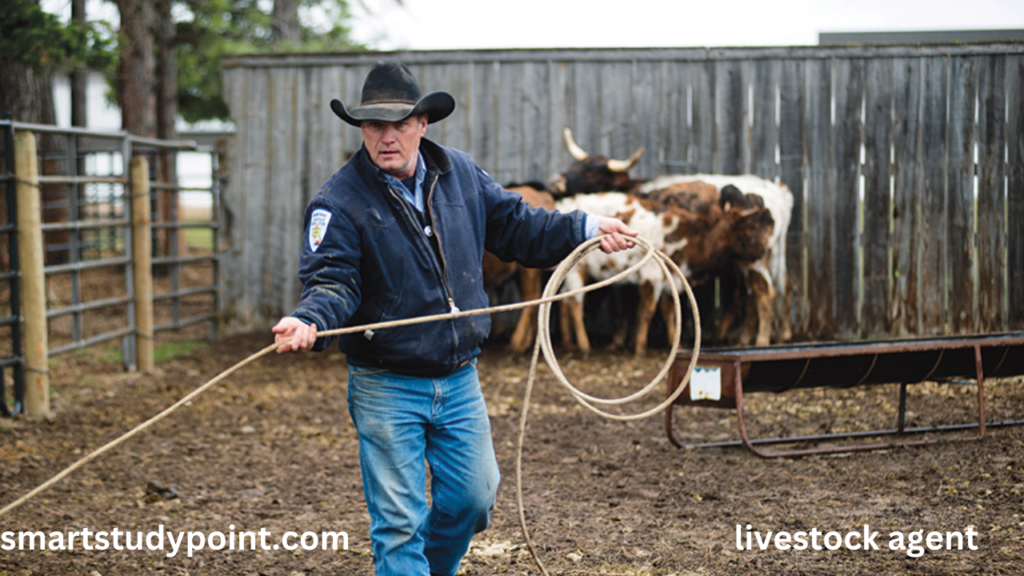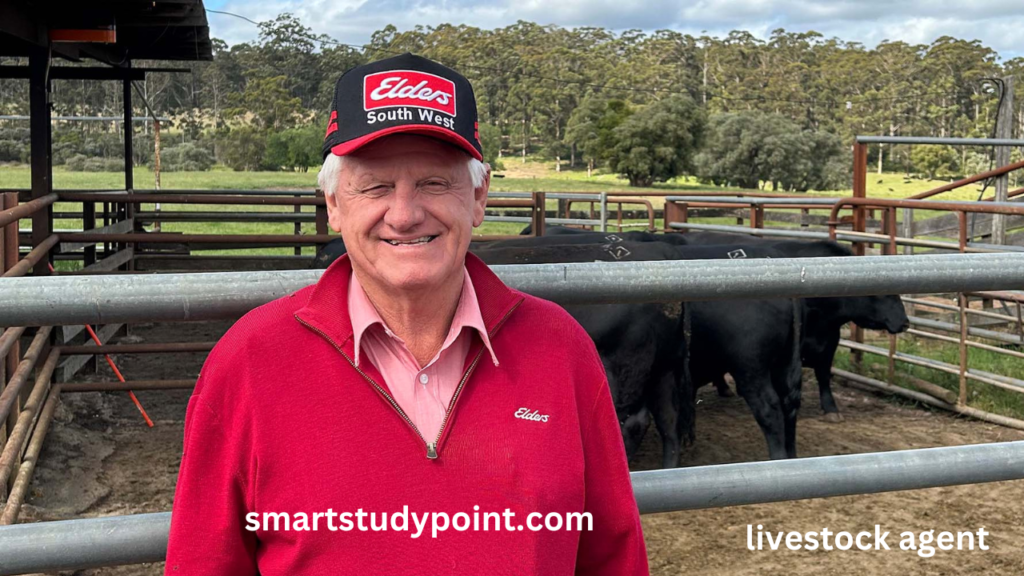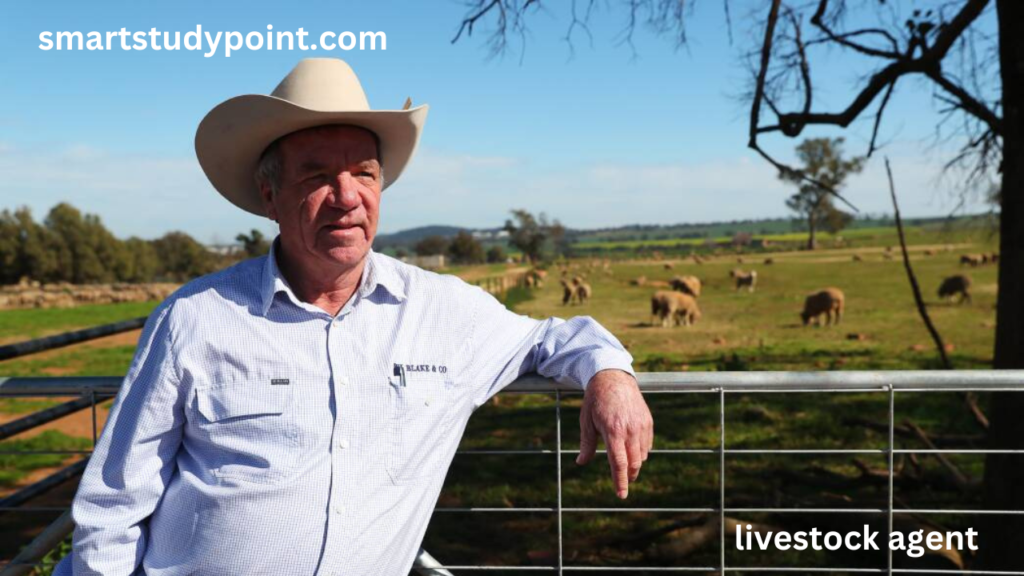Clients of livestock agents can purchase or sell farm animals like pigs or cattle with their assistance. These experts can evaluate the quality of animals because they usually have a background in agricultural business and have worked with cattle. If you need to know more information about livestock agents and how to become for being involved with agriculture and love animals, you may need to read more here.

This page expounds the job description of a livestock agents, captures their general working environment, wages and job prospects, and provides an article on how to land the job. A livestock agent is an agricultural specialist who primarily focuses on purchase of animals and then selling them to farmers, ranchers, meat processors and other consumers. Whereas some of them work for firms, many of the livestock agents are independent individuals. Livestock agents, who have at least a bachelor’s degree in animal science, agricultural business, or related field, and who previously worked with local farmers have higher odds of getting the job. environment, gives an estimate of their average pay and career prospects, and provides information on how to become one.
Important conclusions:
• A livestock agent is an individual who is involved in agricultural business of selling and purchasing animals within and for farmers, butchers, livestock producers and other stakeholders.
• While some work for companies, many livestock agents are self-employed.
• A bachelor’s degree in a relevant discipline, such as animal science or agricultural business, and experience working with local farmers are the best ways to increase your chances of becoming a livestock agent. It is furthermore necessary to have a high school graduation or GED.
A livestock agent is what?
Today cattle, chickens and pigs are bought and sold by livestock agents popularly known as livestock buyers. They serve their employers who may own cattle, be farmers, meat processing plants or any other related establishments that deal with animals. To determine the condition and quality of the cattle, to calculate their profit and loss account, and to make purchases for clients, they attend a variety of auctions. These agents will always be keen on market trends in order to advise their clients on issues to do with purchasing of livestock.
What do livestock agents do?
Consequently, in order to acquire animals, livestock agents usually act as intermediaries between a seller and the latter’s customer. The following tasks are usually performed by these specialists, though they may differ depending on the local agricultural sector:
- Look into livestock purchasing options and visit farms to evaluate the caliber of the animals for sale.
- To achieve the best deal for their customer, they evaluate the value of animals and bargain with vendors over prices.
- Respond to inquiries from clients on the sales agreement and help with contract preparation.
- Plan the delivery of animals to their customers.
- Engage with customers to learn about their livestock need and offer suggestions for buying.
- To be informed about current events, track stock prices and market trends.
- Preparing sales reports and keeping track of purchases for their business or agency.

The setting in which livestock agents operate:
Numerous livestock agents operate independently and directly for their customers, who may include farm managers or owners. Others are employed by businesses that buy animals for their operations, including grocery stores or food processing enterprises. These agents might frequently travel for work in order to attend auctions on behalf of their customers. Their work schedule may change when they attend auctions or meet with clients who want to meet on the weekends or in the nights. cattle agents inspect cattle outside most of the time, although they also undertake some office work, like writing reports and studying market trends.
Career prospects and average pay for livestock agents:
The earning potential of purchasing agents, which includes livestock agents, is known, however average wage statistics for livestock agents is not accessible. On average, purchasing agents make $44,444 annually. Their typical pay may differ according to experience, employer, and region.
As livestock agents get more expertise in the industry, their average pay usually rises. To this end, self-employed agents are similarly capable of setting their own client prices and increasing their revenues beyond what a corporate or agency-employed agent would earn. The U.S. Bureau of Labor Statistics expects the next ten years to be comparatively good for job creation in the occupation of managers, buyers and purchasing agents.Nevertheless, the government estimates that companies will need to fill roughly 45,800 positions annually for these individuals.
The BLS predicts that these jobs will become available as other workers in the sector retire or move to other sectors of the workforce. Additionally, there might be a greater need for livestock agents to assist certain companies in buying cattle so they can market animal products to consumers.The government has estimated that employers are likely to order about 45,800 such experts every year. According to BLS these jobs are expected to be created as other employees in the sector reach retirement age or transfer to other industries. And finally, some firms might require the services of more livestock agents to assist them source for cattle to supply animal-products to the consumers.
How does one become a livestock agent?
You can become a livestock agent by following these steps:
1. Earn a high school diploma:
High school diploma is usually the only requirement needed for employment in the capacity of livestock agents. To prepare for a career in this profession you need to take a number of classes in high school such as business, biology mathematics and animal science. Agricultural program is offered in some high schools for those willing to learn more about agriculture, food and natural resources. They can also boost your college applications in case you choose to pursue a degree sometime in the future.
2. Consider a degree:
Certain positions, like the one in food manufacturing firms may require the holder to have an associate or bachelor’s degree though many of the livestock agent positions offered are optional It might be helpful for getting more information about the agricultural procedures, as well as for creating the essential attributes in business managing and others which would be necessary in becoming an agent of livestock. Most of the agents work in the livestock industry and they are qualified in agronomy or animal science, agricultural business or related major degrees. During these programs you will be privileged to attend to classes in many different subjects with a vocation preparation in agriculture.
You could enroll in courses like these:
- Nutrition of animals
- Agronomy
- Policy for agriculture
- Administration of agricultural businesses
- Breeding animals.
- Interaction in business
- Trade in agricultural futures
- Agricultural animal reproduction
- Basics of accounting Meat science
- Nutrition
- food science in humans

3. Gain experience:
It is helpful to become knowledgeable about livestock in order to determine how to evaluate these animals’ quality. This experience may be shared by some livestock agents who grew up on a family farm that loved animals. Others can locate part-time jobs helping nearby farmers or ranchers. Seek out apprenticeships or internships that need work directly with animals, like farmworkers. Animal husbandry, or the practice of rearing and breeding farm animals for food production or other uses, might be introduced to you through this event.
4. Develop skills:
Being a successful livestock agent can be achieved through a variety of abilities. You can do a variety of employment duties, like negotiating animal sale prices or establishing relationships with farmers, by honing some of these soft skills. Look for online classes or workshops in your area if you wish to hone some of these abilities.
Among the abilities you can strive to acquire are:
Communication: Livestock agents interact with a wide range of individuals in the course of their profession, including farmers, ranchers, managers, and vendors. They might inquire sellers about the condition of their animals and suggest cattle to customers if they have good communication skills.
Interpersonal: To maintain their position as their clients’ representative when it comes to cattle acquisitions, livestock agents must gain their trust. In order to comprehend their clients’ demands and establish a good rapport with them, these agents might employ interpersonal skills including dependability and active listening.
Research: In order to identify trends and counsel their clients on possible purchases, a lot of livestock agents conduct market research, including examining stock prices. Utilizing their research abilities, they can gather data, evaluate several sources, and provide their conclusions to customers.
Negotiation: Livestock brokers frequently look to get their customers the best possible offer. They can negotiate other terms of a purchase agreement or convince vendors to reduce their pricing with the use of these abilities.
Decision making: Livestock agents may not have much time to assess the available livestock when they visit auctions. With the help of these abilities, they can move swiftly and choose the best livestock for their customers.
5. Join a professional association:
Joining a professional agricultural association has several advantages, but it is not required to obtain work as a livestock agent. By meeting other agents and growing your professional network, these groups can help you obtain professional references or locate employment. To help you acquire new skills, a lot of associations provide certificates or courses. It is also good to cast our mind back to the particular associations active in your resume with a view of making the candidate as unique as possible. Two broad society include the American Station of Animal Science and the American Station of Farm Managers and Rural Appraisers.
6. Tailor your resume:
When you are ready to go out for jobs as a livestock agent update your resume with your relevant experience and skill set. If possible, kindly make use some of the same keywords used in your resume and from the job description to help you pass through application tracking system (ATS).
You should place a lot of emphasis on your relevant work experience on your resume so that the employers can consider you for the job. If you graduated in the last one year, you should include some of the relevant courses you took towards preparing for the livestock agent job. Be careful when stating the talents you include in your CV, ensure that they correspond to the talents demanded in that job.
FAQS
What is livestock agent?
A “livestock agent” can be defined as an individual that facilitates the procurement of livestock such as cattle, poultry including chicken and pigs for sale to customers such as a farmer, organizations engaged in meat processing among others or a cattle farmer.
What livestock agent laws enforcement can Montana have?
The mission of the Brands Enforcement Division is to support the livestock sector by offering expert law enforcement and investigative services for tracing livestock ownership and preventing and/or resolving associated criminal activity.
A livestock keeper is what?
Principle 1: Those farmers, who exploit livestock, own breeds which are involved in producing new varieties and keeping animal genetic resources for agricultural and feed production.
Principle 2: Here I have chosen special breeds and their keepers, as well as the specificity of the environments, where these breeds have to exist and be saved.
When and what happened the role of livestock agent law enforcement in Montana?
The mission of the Brands Enforcement Division is to support the livestock sector by offering expert law enforcement and investigative services for tracing livestock ownership and preventing and/or resolving associated criminal activity.
How can one become an Australian livestock agent?
How to work as a station agent and stock broker. Even without official qualifications, you can work as a stock and station agent. There may be some on-the-job training available. It could be helpful to have a certificate IV in property services (stock and station agency) or a related sector, such agribusiness or rural operations.
How much does a Montana livestock agent earn?
In Billings, Montana, how much does a livestock agent make? As of October 16, 2024, a livestock agent in Billings makes, on average, $50,993 year. In case you require a basic pay calculation, that comes to about $24.52 per hour. This amounts to $980 per week or $4,249 per month.
Describe a transfer agent.
Records of ownership transfers, security holder records, certificate issuance and cancellation, and dividend distribution are all handled by transfer agents working for the security issuer. Transfer agents are usually banks or trust organizations, but sometimes a company acts as its own transfer agent.
What is a trade agent responsible for?
They create the paperwork required to import or export goods that are anticipated to be successful in specific consumer markets. Trade agents’ responsibilities vary based on whether they represent buyers or sellers, but they frequently involve selling their company’s goods at the best price.
Conclusion:
Becoming a cattle buyer usually calls for a combination of formal schooling, real-world experience, and industry understanding. The very minimum of education is usually a high school diploma, but getting a degree in business management, agricultural economics, or animal science might provide you a competitive advantage.
Success also requires a thorough awareness of market trends and practical experience with animals. A livestock buyer can further develop their skills and more successfully navigate the ever-changing agricultural market with the support of professional certifications and continuing education. With the appropriate training and expertise, livestock buyers are essential to the agricultural supply chain, guaranteeing high-quality animal purchases and promoting the sustainability of the sector.
That’s great.You have saved my lot of time .I am impressed by your research and hardwork.keep it up